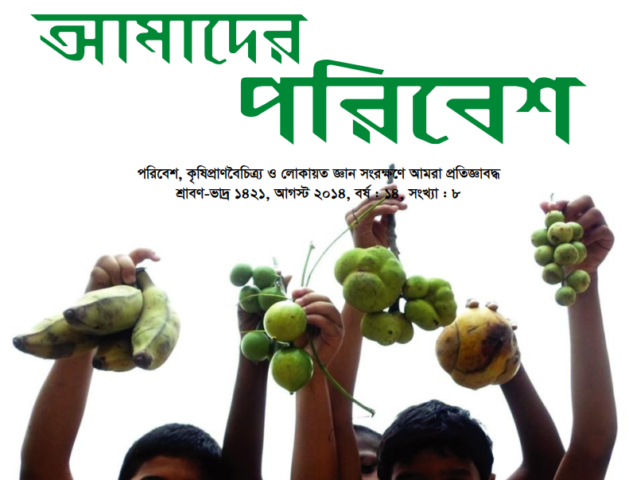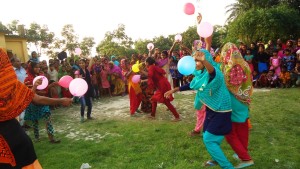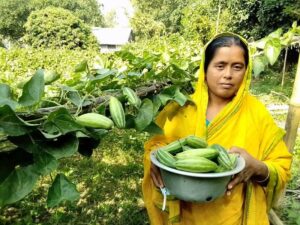Most. Selina Khatun, Field Facilitator, BARCIK PORIBESH Project, Assasuni, Satkhira
Kobita Dasi belongs to the lower caste (Shudras-laborers by profession, are considered “untouchables” or Dalits community) in Rishipara village of Sreeula Union, under Assasuni Upazila, Satkhira District in Bangladesh.

Prior to joining CSO of PORIBESH project, funded by NETZ–Bangladesh implementing through BARCIK, Kobita Dasi was an agricultural farm labourer. She does not have ancestral or purchased lands and but carries out small activities to make money such as making baskets, fishing gears and winnowing fan made of bamboo slips for separating dusts, inert grains etc. from paddy. She always wants to do better in her life. Hence, once the CSO was formed by BARCIK in her village, she became a member.

Along with 20 other members of the CSO, she received trainings including climate resilient farming to learn skills on safe foods by using agroecology and gained knowledge on livelihood improvement through diverse options in CSO group meetings.
Now, Kobita Dasi is working independently. With the assistance from PORIBESH project, Kobita Dasi received a sewing machine worth BDT 13,500 and sews ladies’ garments in her own home. She has now set up a small shop which is run by her husband Suvash Dash and owns 10 local breed poultry by utilizing the profit to strengthen their livelihood and make her family free from starvation. She is now able to sending her two children to school in perusing education.

She hopes to help to other women in tailoring, stitching and dress-making from the neighboring villages to strengthen their livelihood and make them independent.
This is how PORIBESH Project helped Kobita Dasi get a new direction in life by implementing an IGA successfully and also found a path to self-empowerment. She has set an example for other women in her community.
Translated by ABM Touhidul Alam



